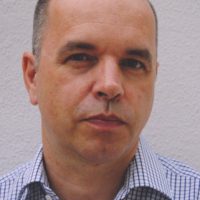Russia’s New Challenge to Europe

Ulrich Speck
Ulrich Speck is a foreign policy analyst based in Heidelberg and Brussels. He is currently a Visiting Scholar at Carnegie Europe in Brussels and writes a foreign policy column for a Swiss newspaper, Neue Zürcher Zeitung. Speck worked for a number of German media outlets, was head of the newsroom at Radio Free Europe/Radio Liberty in Prague, and a DAAD fellow at the American Institute for Contemporary German Studies (AICGS) in Washington, DC in 2006. His articles have been published by the New York Times, the Financial Times, CNN.com, RealClearWorld, Open Democracy, and leading German newspapers and journals. Speck has coedited books on the Revolution of 1848, on American Empire, and on Modern Antisemitism. He holds a PhD in Modern History from the University of Frankfurt/Main. Speck is fluent in German, English, and French. Speck’s research interests are German and EU foreign policy, transatlantic relations, and global order.
As it becomes clear that Russia is forging a new geopolitical landscape in Eastern Europe, Europe and the United States have grappled with the question of their response to this unexpected development. AGI Non-Resident Fellow Ulrich Speck argues that the West must first accept that, despite two decades spent with open arms, Russia is not interested in relations on postmodern terms: negotiation, joint institutions, interconnectedness, and mutual benefit.
In response to Russia’s re-emergent imperialist behavior, the EU can either allow this behavior to persist—tacitly or openly accepting it—or it can defend the international order more actively. Each path has its own short and long-term positive and negative consequences.









